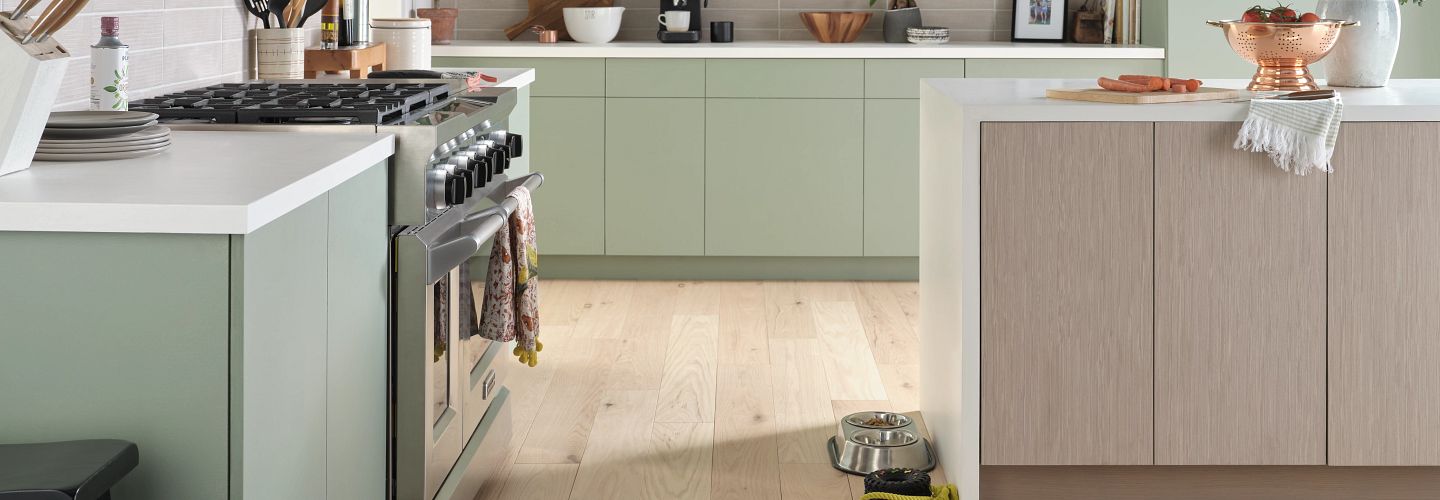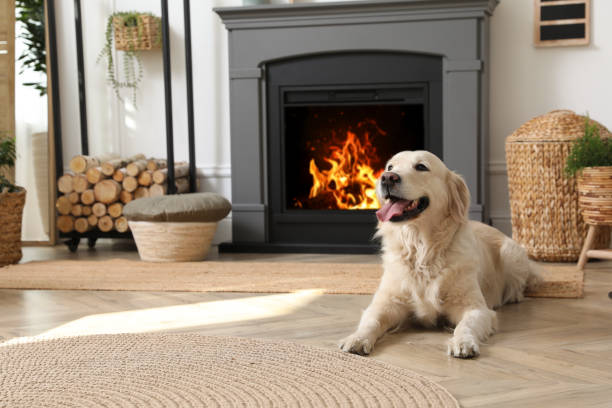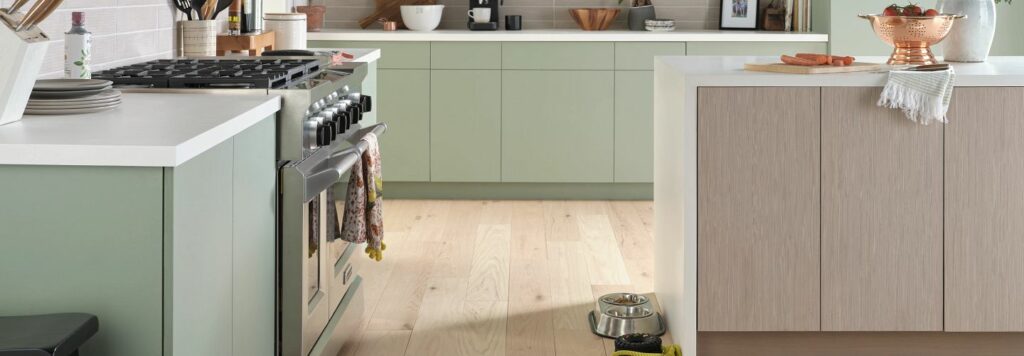
With so many flooring options, it’s difficult to know which to choose. Some considerations are appearance, budget, and durability. Of course, look and price are important, but many people are most concerned about how their new floor will stand up to what life throws at it since flooring can be a significant investment. Keep reading to learn more about scratch-resistant flooring options and why they may be a good choice for your space.
Bamboo Flooring
Made from the fibers of the quick-growing bamboo plant, this flooring is a very durable and sustainable option. The plants are harvested and each stalk is either cut or pulled apart and mixed with adhesive. The resulting floor is very durable, due to the glue. The problem? There is an ideal window for harvesting bamboo which can affect its hardness; it’s difficult to know whether the bamboo in the flooring you choose was harvested at the right time, too early, or too late. In addition, the resilience of the floor also depends on the quality of the glue used. Despite these two unknown variables, bamboo flooring is an excellent choice for areas that need a scratch-resistant flooring option.
Laminate Flooring
Laminate floors have come a long way in terms of durability since their genesis. Advances in wear-layer technology are mostly responsible. One really excellent feature in laminate flooring is many options come with a wear rating, known as an Abrasion Class. A rating of AC1 indicates the floor will withstand moderate wear. AC5 stands for a higher tolerance for traffic. These ratings can be found in the specs of the flooring. Opt for a higher rating for active households with kids or pets.
Ceramic/Porcelain Tile and Stone
Tile and stone are very resistant to scratches and other damage, as long as they are properly installed over a solid subfloor and grouted properly. The materials hold up about the same; they are all difficult to scratch and easy to clean. One weakness, especially true of tile, is that dropping a heavy item on it can cause breakage. If this happens, it’s possible to remove and replace the damaged floor, but it is important to keep this in mind. If you are going with a natural stone option, stick with travertine, or another very hard substance rather than something like marble, which is softer by comparison and tends to show wear.
Vinyl Tile or Plank
The superhero of the flooring industry, vinyl flooring is nearly invincible. It can stand up to many of life’s hazards, from wet spills and messes to muddy boots and frisky pets. Vinyl flooring is ideal for many applications and is frequently found in rental properties and commercial applications due to its resilience and excellent price point. The drawback of vinyl? It isn’t totally invincible; while it stands up well to moisture and foot/paw traffic, heavy furniture is vinyl’s kryptonite. It can be scratched by improperly moving something like a large couch or refrigerator. If you choose vinyl, be sure to protect it by using silicon or felt covers on the legs of your heavy furniture to avoid scratching, and use care when moving appliances.

Hardwood and Engineered Hardwood
Both hardwood and engineered hardwood are made obviously, of wood. They are not the most resistant to scratches, but true hardwood floors can outlast many other types of flooring due to its classic appearance and ability to be refinished multiple times. Some engineered floors, which have a thin wood layer over a substrate core, are also able to be refinished; check the specs if you are considering installing it in an area with a lot of traffic. If you do choose to install engineered floors, be sure to protect them by using coverings for furniture legs and throw rugs.
With the wide variety of flooring options, getting overwhelmed is not uncommon! If you are feeling unsure about which flooring to choose for your space, visit [Dalton Flooring of Georgia. We can help review options, share plenty of valuable insight, and connect you with an installer who can help make your new floor dreams a reality, in less time than you think!

